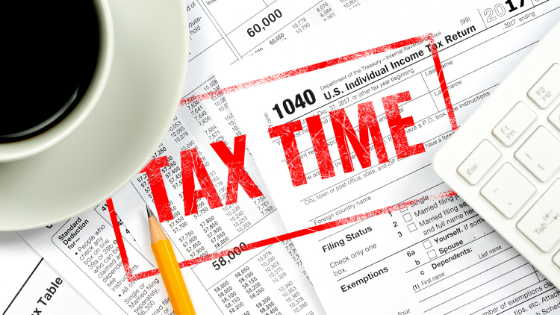6 Tips to Prepare your Small Business for Tax Season

There’s nothing more dreaded to a small business owner than the word TAXES. You’ve just gotten through the holiday season, and now you’re focused on the New Year. If your a veteran-owned small business, maybe you’ve gotten lucky and landed your small business in a veteran tax-friendly state.
According to the National Small Business Association in 2018, one-in-three small businesses report spending more than 40 hours each year on federal taxes. Making sure you have a well-experienced CPA is a crucial step in ensuring your taxes are filed correctly. However, there’s no getting around preparing them and submitting them. Usually, there’s a lot to be done by business owners, and finding the time can be a challenge. We’ve put together 6 tips to prepare your small business for tax season.
1. Make sure to classify your business
You need to decide if you are an S Corporation, a Limited Liability Partnership, Single Member LLC, or a Sole Proprietor, to name a few. If your unsure where your business may fall, speak with your tax specialist and let them help guide you on what your company should file as. They all do and mean different things for a business and your taxes.
2. Hire the right accountant
Hiring an accountant or CPA to do your taxes is is more than just filing. Most accountants will work throughout the year with you to closely monitor your profits and losses. They will track sales tax, federal withholding, and make sure that your business is heading the right direction.
3. Get advice on your business plan
Working together with your CPA and your Financial Advisor is a smart way to get information and understand how to grow a small business. Understanding retirement options- contributions, and where to save money is a conversation you should be having annually at the least. When it comes to your business, and your future make sure your planning for your financial freedom right.
4. Be aware of all tax deadlines.
The last thing you ever want is to realize you’ve missed your deadline. You also don’t want to end up realizing you’re so far behind on getting your taxes together that you have to file for an extension. Be smart and understand your deadlines for your business. If you’re unsure of what that is, contact your CPA today.
5. Keep up to date records
Making sure that your records are right will only benefit you. Keeping well kept thorough record-keeping can ensure you that your taxes are done timely and accurately. Having things like bank records, credit card statements/receipts, invoices, knowledge of any equipment purchased, and miles driven. It also helps your tax preparer out considerably and leaves fewer holes for them to fill in the blanks with. Keeping track of all this with online software is easy nowadays. Software are now available for are easy downloads and purchases online.
6. Be aware of possible tax deductions.
Have you purchased new equipment for your business lately? What about donations? You can lessen your tax burden by donating by being tax-deductible. Old equipment can depreciate, and you can give your employees end of year bonuses that alleviate taxes. You should be checking in your with your CPA several times a year to let them know where you stand if they aren’t handling your accounting directly so they can guide you on best practices to save what you can where you can.
A you a veteran
in transition?
Lorem ipsum dolor sit amet, consectetur adipiscing elit, sed do

